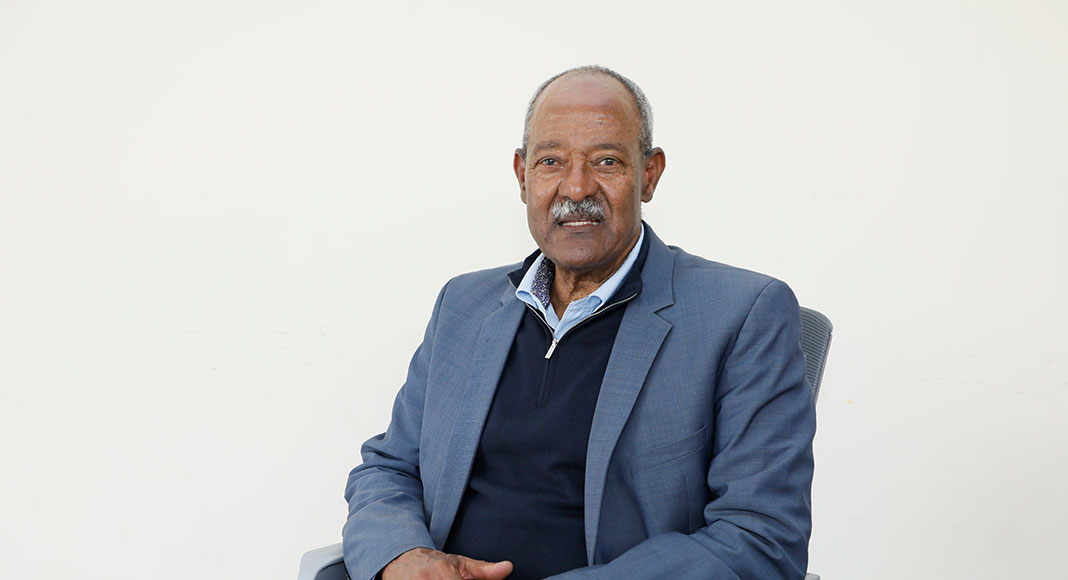A Personal Tragedy Sparks Awareness Drive
As global cancer rates climb, breast cancer remains one of the most pressing health challenges in Ethiopia, where late-stage diagnoses and limited access to treatment continue to result in poor outcomes. In a country with constrained health infrastructure and a shortage of specialized care, a new grassroots campaign is aiming to shift the narrative.
The Zewdilu Getachew Foundation (ZGF), in partnership with the Addis Ababa City Administration Health Bureau, launched a city-wide initiative to bolster breast cancer awareness and early detection efforts. Operating under the banner “City-wide Movement for Breast Cancer Awareness,” the program is set to unfold in three rounds of Training of Trainers (ToT) sessions from May 8 to May 31, 2025.
The campaign targets all 11 sub-cities of the Ethiopian capital, training selected healthcare professionals from local hospitals and clinics to lead community outreach. The curriculum includes modules on breast cancer awareness, early detection, communication strategies, and referral procedures. Once trained, participants are expected to cascade the knowledge to frontline workers within their respective districts.
The program is part of the Foundation’s broader strategy, which spans research, public education, screening facilitation, and treatment support. It draws on previous community-based studies and national reviews analyzing Ethiopian women’s knowledge, attitudes, and behaviors regarding breast cancer.
Social media campaigns and newsletters have already been deployed to build momentum, while early screening drives—tied to the training initiative—have reached dozens of women. “The ultimate goal,” organizers stated, “is to build a future where every woman in Addis Ababa understands that early detection saves lives.”
Monthly monitoring and reporting mechanisms will accompany the program, along with a structured referral and supervision system. Trained health professionals will also lead community-level engagement.
In an innovative twist, each sub-city will designate its own “Pink Month,” culminating in a nationwide awareness campaign every October. Organizers said the plan was as much about solidarity as it was about science, and the city-wide initiative reflected the power of partnership and shared purpose—bringing together health professionals, policymakers, and community champions to fight breast cancer with unity, compassion, and determination.
The initiative is deeply personal forTsige Geberemariam (MD), a professor of pharmaceutical technology at Addis Ababa University and executive director of ZGF. The foundation is named in honor of his late wife, Zewdilu, who died of an aggressive form of breast cancer.The initiative, he said, follows a nationwide systematic review and meta-analysis assessing breast cancer awareness and screening behaviors across the country.
According to the Professor, fewer than half of the general population is aware of the impact of breast cancer—a gap that continues to cost lives. “Our primary goal is to raise awareness and prevent tragedies like the one that took my wife,” he said. “This is no longer just her story. It’s a growing national crisis that is affecting younger women, too.”
To that end, ZGF has developed 10 training modules aligned with the Ministry of Health’s national policy framework. These modules form the core of a three-phase Training of Trainers (ToT) program designed to tackle the awareness gap at scale.
“Limited medical infrastructure and treatment access only make the situation worse,” Tsige added. “We hope these models will help.”
He noted that while the federal government and the Ministry of Health have developed several strategies to combat breast cancer, ZGF’s program is designed to complement those efforts. A total of 54 health professionals, drawn from 11 sub-cities, are participating in the initiative’s first round of training.
“Once certified, these trainers will pass on their knowledge to health center colleagues in their respective areas,” he explained. “It’s a cascading model of education, designed to reach communities directly. About 90 percent of breast cancer problems here stem from a lack of awareness. We believe this approach can help close that gap.”
ZGF’s ambition does not stop at Addis Ababa. The organization plans to roll out similar awareness campaigns across Ethiopia’s regional states, with the long-term goal of expanding its model throughout Africa.
Tsige also drew attention to the unique challenges faced by women in developing nations, where limited knowledge often drives individuals to traditional remedies and Holy Water rather than medical intervention.
“Substantial public education is essential,” he said. “Too many women are dying from this disease because they don’t understand the signs or where to seek help. Breast cancer is now one of the leading causes of death among women here, and we must take preventive action seriously.”
He urged women to integrate breast self-examinations into their routine personal care, and highlighted warning signs that should prompt immediate medical consultation—unusual lumps, skin discoloration, persistent itching, nipple inversion, or any changes in breast texture or shape.
“Life, once lost, cannot be replaced,” he said, calling for a unified national campaign that combines awareness with access to early detection and treatment.
The urgency of the campaign is underscored by sobering statistics.
A 2024 study by the Addis Ababa University Oncology Center found that breast cancer accounts for 33 percent of all female cancers in Ethiopia—yet only 12 percent of cases are diagnosed early. The study, published in the East African Medical Journal, reported that 80 percent of patients seek medical help only after symptoms have progressed significantly.
In 2023, the Ethiopian government, in collaboration with the World Health Organization, launched a national breast cancer screening program. But a 2024 Ministry of Health report revealed that fewer than 10 percent of eligible women have been reached, citing logistical hurdles and financial constraints.
A separate study published in The Lancet Global Health the same year further highlighted deep disparities in access to care. While urban centers offer slightly better access to radiotherapy, nearly 70 percent of the population lives in rural areas where such services remain virtually non-existent.
These findings make one thing clear. According to Tsige, awareness alone is not enough. “It must be paired with robust early detection programs.”






